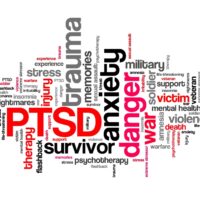Post Traumatic Stress Common After Car Accidents

Car accidents are sudden, often violent events that can leave victims suffering potentially life threatening injuries. In the aftermath, it is not uncommon for victims to struggle with memories of the crash or collision and to experience feelings of reliving the event. Unfortunately, many fail to talk about their symptoms and may doubt themselves or their ability to cope as a result. Post-traumatic stress disorder (PTSD) is a very real condition and one that car accident victims need to address.
Post-Traumatic Stress Disorder: How Often Does it Affect Car Accident Victims?
When sudden, shocking, or frightening events happen, it triggers a physical response in your body. Known as the ‘flight or fight’ reaction, it involves the rush of adrenalin, a quicker heartbeat, and increased sensory perception, all of which is designed to help you survive. While this is a natural and necessary reaction to trauma or danger, it can take time for your body and mind to recover.
Post-traumatic stress disorder (PTSD) can occur when your body continues to respond to a situation as if it is currently happening, even though it occurred in the past. Frequently cited among veterans and victims of violent crimes, it is also common among people involved in car accidents. Studies published in the Journal of Nervous and Mental Disorders warn that close to 40 percent of all car accident victims may be affected. The more serious the accident, the more likely you are to experience PTSD. Symptoms may include:
- Flashbacks, in which you vividly recall or relive the accident;
- Sleep disturbances, such as insomnia and bad dreams;
- Frightening, intrusive thoughts that occur throughout the day;
- Generalized anxiety and panic attacks in certain situations, such as when driving in a car;
- Depression and increased isolation from family, friends, and favorite activities.
Dealing With PTSD After a Car Accident
After any violent or frightening event, it is natural to feel shaken in the aftermath. These feelings are likely to diminish over time and as you recover from your other car accident injuries. With PTSD, not only do they not get better but they may actually worsen over time, impacting your health and other areas of your life.
The National Institutes of Mental Health advises that one of the first steps in dealing with PTSD in the aftermath of a car accident is admitting the problem. Speaking to a therapist about your feelings can be helpful and they may offer suggestions on how to overcome certain symptoms. Inform your family doctor as well, as there are medications and other types of treatments available. In your car accident claim, you may be entitled to reimbursement for the costs associated with treating your PTSD, as well as for the pain, suffering, and other impacts it has had on your life.
Let Us Help You Today
At the Law Office of Steven G. Lavely, our goal is to help you recover in the aftermath of a car accident by ensuring you get the compensation you are entitled to in your claim. Call or contact our Bradenton car accident attorney online and request a consultation today.
Resource:
nimh.nih.gov/health/topics/post-traumatic-stress-disorder-ptsd/index.shtml#part_145375
journals.lww.com/jonmd/pages/articleviewer.aspx?year=1995&issue=08000&article=00001&type=abstract
https://www.lavelylaw.com/be-aware-of-car-accident-concussion-risks/
